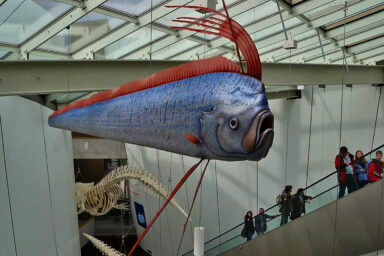Older, Online, and Fed Lies: How an Aging Population Will Reshape the Internet
Women Sue Hospital Over Secret Cameras ; WA Bans Mailing Books to Prisoners ; and More Picks
Women Sue Hospital Over Secret Cameras ; WA Bans Mailing Books to Prisoners ; and More Picks 4/5
More Than 80 Women Sue San Diego Hospital Alleging Secret Camera Recordings (Reader Steve)
From the LA Times: “Patients were filmed without their consent in three private rooms from July 2012 to June 2013, according to the lawsuit filed last week in San Diego County Superior Court. The women allege hidden cameras filmed approximately 1,800 patients undergoing medical procedures — including births, dilatation and curettage to resolve miscarriages, and hysterectomies.”
WA Prison Officials’ Ban on Sending Books to Prisoners Causes Uproar (Reader Steve)
The author writes, “The [Washington] state Department of Corrections, which posted the new policy online last month, says the ban is necessary to reduce contraband flowing into the prisons. It drew little notice until a Seattle nonprofit that has been sending used books to prisoners since the 1970s discovered it last week.”
This TX Prisoner Just Wanted a Blanket That Wouldn’t Give Him Sores (Chris)
The author writes, “A federal court this week sided with an inmate who sued the Texas prison system to get a cotton blanket after repeatedly telling officials he was allergic to the standard-issue bedding, which he alleged is made of ‘recycled waste’ that caused him to have open sores. For 10 years, Calvin Weaver has been asking prison staff for a cotton blanket. But officials refused, so last year the Harris County man took them to court, representing himself from inside the Terrell Unit in Rosharon.”
Here’s Who Owns Everything in the Media Today (Chris)
From Recode: “A diagram that organizes distributors, content companies and internet video companies by market cap … and their main lines of business.”
What We Aren’t Eating Is Killing Us, Global Study Finds (Gerry)
The author writes, “more than half of all global diet-related deaths in 2017 were due to just three risk factors: eating too much salt, not enough whole grains and not enough fruit. Those risks held true regardless of socioeconomic level of most nations.”


